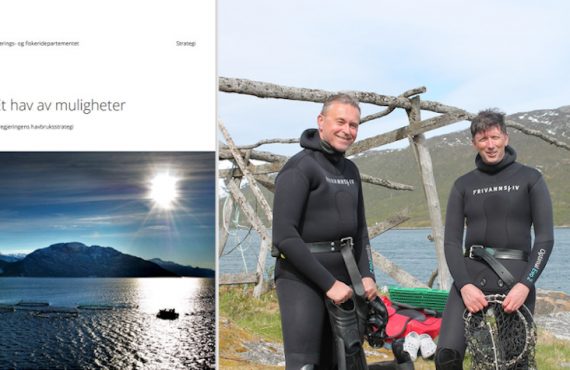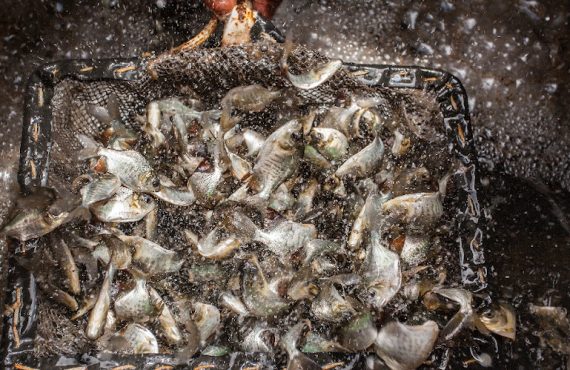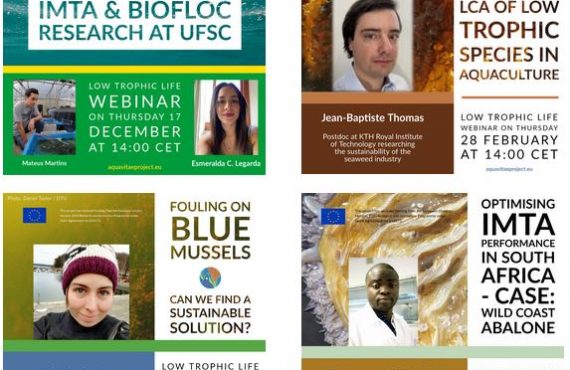Left to right: cultivation of oysters on floating pillows at the Primar Aquacultura farm in Brazil and Márcia Kafensztok managing oyster seeds. Photos: Primar Aquacultura Márcia Kafensztok, who researches on the possibilities of Brazilian native oyster production and IMTA systems in Brazil, has been awarded first place in the Women of
Norwegian aquaculture strategy to the left. Minister Odd Emil Ingebrigtsen and AquaVitae coordinator Phil James about to go sea urchin diving in the Arctic ocean in June 2020. Photos: Norwegian Ministery of Trade, Industry and Fisheries. The AquaVitae project is highlighted as a successful example of international cooperation in aquaculture research. In
Tambaqui fingerlings. Jefferson Christoffoletti, EMBRAPA. Arapaima gigas, known locally as pirarucu, is the largest scaled freshwater species in the world and a strong candidate for aquaculture in Brazil. Alongside this giant of the Brazilian rivers, tambaqui (Colossoma macropomum) is the second freshwater species cultivated in the country,
Collage with promotional images. Each month a young researcher in the AquaVitae project gets to show their work on sustainable aquaculture to the public. The recordings of the sessions are available here: Seaweeds as key components in pond IMTA systems; Stefany Almeida Pereira, UNESP Low
Screenshot from the AquaVitae project movie. With a focus on sustainability and the possibilities of low-trophic species aquaculture, AquaVitae has released a promotional short film for the project work. The film outlines the role of the Atlantic Ocean as a shared food resource for coastal countries and the need to
Odd Emil Ingebrigtsen (Minister of Fisheries and Coastal Affairs) and Philip James (Scientist, Nofima) with their wetsuits on, ready to go diving for sea urchins outside Tromsø, Norway. Photo: Emil Bremnes / Nofima Author: Emil Bremnes, Communications adviser at Nofima AquaVitae coordinator Philip James (Nofima) went diving with the Norwegian Minister of
Aerial view from Primar Aquacultura area. Photo credit: Erich Matos Rodrigues. From Northwest Brazil, Primar Aquacultura farms oysters, shrimp and sea horses together with an exhaustive respect for nature. Surrounded by the tropical landscape, the aquaculture farm is located in the estuary of the Nísia Floresta-Papeba-Guaraíras lagoon
In February 2020, the Alfred-Wegener-Institute (AWI) attended a booth at the Fish International to disseminate AquaVitae to fish wholesalers, processors, food retailers, the hospitality industry and media. Fish International is the only professional trade fair in Germany for the fish industry. 10,302 attendees











